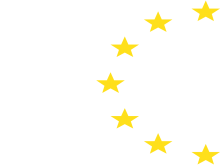International meeting on the VASP software & ecosystem
Rationale
The Vienna Ab-initio Simulation Package (VASP) is one of the leading electronic structure software to study chemical / physical properties and reactions paths of solids, surfaces, and interfaces. It is based on the atomic scale modeling from first principles by solving the many-body Schrödinger-type equation, the Kohn-Sham equations (Density Functional Theory; DFT). The software is able to tackle problems with 1-1000s atoms and applications are widely used to perform simulations of liquids, crystals, magnetism, semiconductor/insulators, surfaces, catalysts.
The software has been developed/refractored by the Kresse group at the University of Vienna and VASP Software GmbH for about ~25 years. It enables MPI and Open MP parallelism, and prior to 2011, first efforts on GPU acceleration with CUDA C were considered.
During the meeting considerations on how to run VASP efficiently in national HPC facilities (i.e. Oblivion) will be presented. Theoretical background on the underlying theory is to be presented by invited speakers, and who will also focus on the best practices for running VASP calculations.
Scientific Topics
The meeting program covers several fundamental topics in the field employing different theoretical methodologies which are best fitted for the properties to be probed and are implemented in the VASP package:
- VASP: Parallelization and compilation efficiencies (i.e. OpenMP, MPI, GPU)
- Mineralogy
- Effect of dopants/impurities
- Heterogeneous catalysis (i.e. water splitting reactions)
- Lattice Dynamics
- Thermoelectrics
- Topological Insulators
- van-der-Waals heterostructures
- Data-driven discovery of materials
